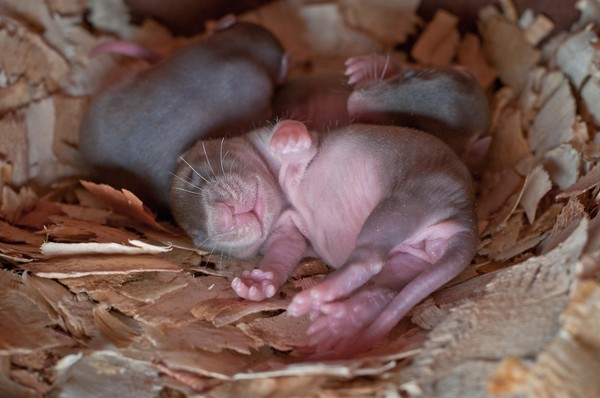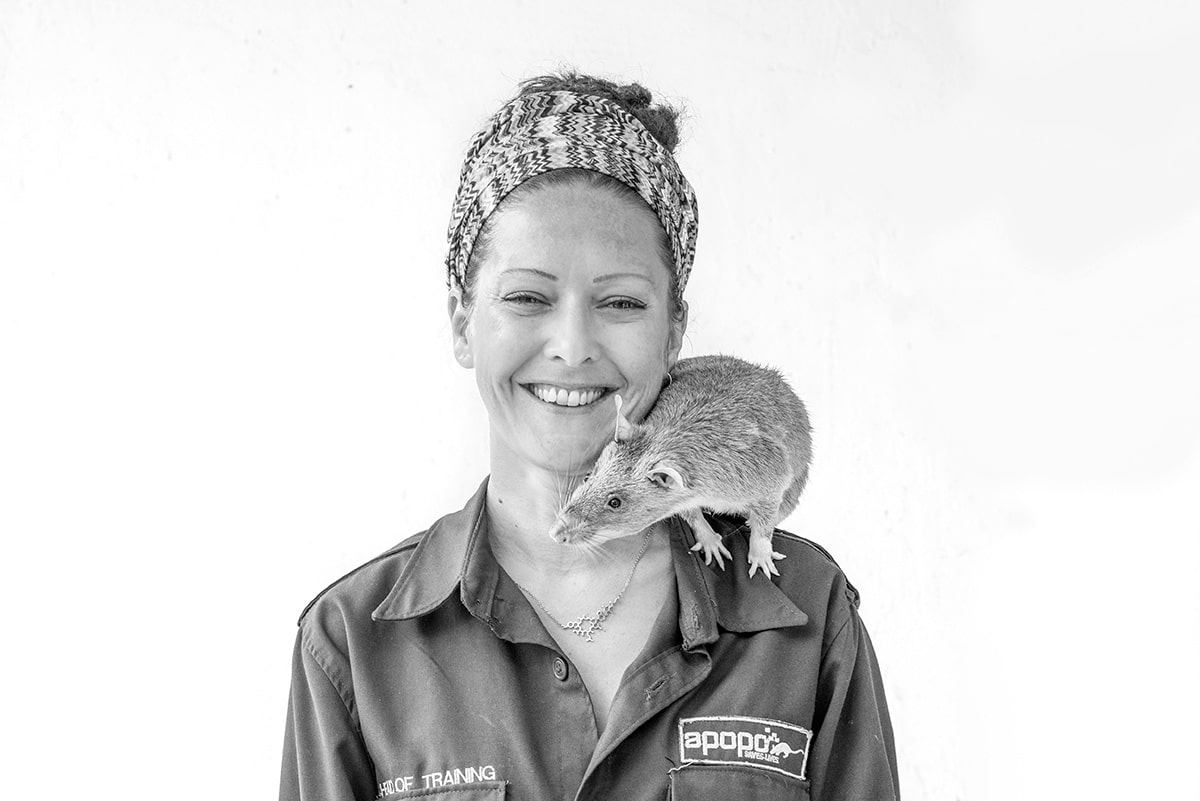APOPO’s Training & Research Center is based in Morogoro, Tanzania. It’s here that for 20 years, the detection rats technology has been researched and developed.
Breeding
Breeding pairs are matched from past star performers. Occasionally local wild male rats are captured using humane traps and paired with APOPO-bred female rats in order to ensure gene pool diversity. The wild rats are released within 2 months before habituation. The rats take around 5 weeks to conceive and males are then separated to protect the young pups. A rat litter is generally between one and five pups that remain undisturbed with their mothers for 3 weeks before they begin their training.

Socialisation
At 4-5 weeks, the first step to becoming a HeroRAT is taken when the pups begin their “socialization”. APOPO handlers gently carry them around, introducing them to sights, sounds, smells and noises, to adapt them to the training environment and their handlers.
Basic clicker training
After passing the socialisation tests the baby rats move on to basic training around 10 weeks. Here the young rats first hear clickers and receive rewards in order for them to associate the sound with food, and be later motivated to carry out trained actions such as searching out the target scent.
Discrimination training
Once the rats have learned clicker/rewards, they are then trained to discriminate between everyday smells and their target scent (either TNT odor, or the smell of TB-positive sputum samples). From here on in they will be deployed as either mine detection rats (MDR) or TB detection rats (TBDR). The rats are introduced to a strong target scent that will be gradually lowered in strength, while dummy scents are gradually added and the training area expanded. Eventually the rats will be able to sniff out TNT or Tuberculosis in real-life conditions.
Research
Scent detection rats offer massive potential to help solve other social challenges such as brain disorders and illegal trafficking of wildlife or contraband. In order to explore new applications, APOPO is committed to empirical research and study, and publication of results in peer reviewed journals. Studies target better understanding of the behavior of the rats in order to improve their speed and accuracy, as well as focusing on their performance in different settings and applications. For detailed information about our current research and studies, go to our current studies page.

